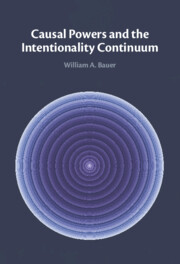Introduction
The Metaphysics of Powers and the 3d Account
Published online by Cambridge University Press: 13 October 2022
Summary
This chapter introduces the two main questions that this book attempts to answer. First: Why powers? Second: What are powers like? It also discusses the overlap between metaphysics and science, some differences between powers and qualities, the relationship between properties and substances, how we can know powers, and different types of powers isms. The chapter then distinguishes between networking and nodal accounts of powers before previewing the central idea of the book: the 3d account of powers (a nodal account), which combines two core theses. The first is the Physical Intentionality Thesis, which concerns the fact of physical intentionality: that the power is directed toward manifestations. The second is the Informational Thesis, which concerns the content of physical intentionality: what the power is for or directed toward. Lastly, a roadmap for the rest of the book is provided.
Keywords
Information
- Type
- Chapter
- Information
- Causal Powers and the Intentionality Continuum , pp. 1 - 18Publisher: Cambridge University PressPrint publication year: 2022
